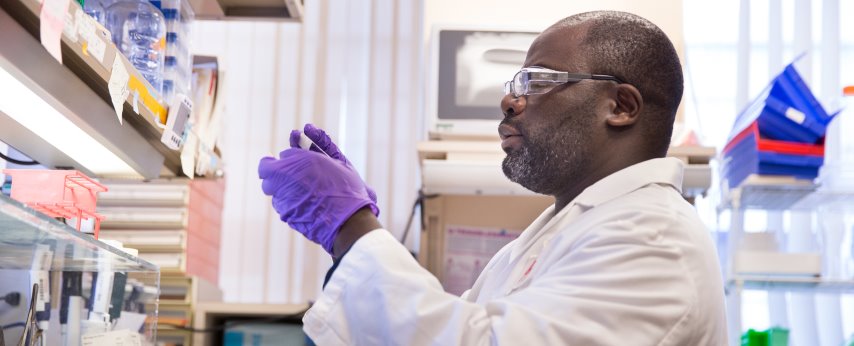By Laure Negiar, analyst / portfolio manager, global and global ex-US strategies at Comgest
With global stock markets experiencing the most volatile times since the 2008 financial crisis due to the impact of the Covid-19 pandemic on economies worldwide, investors are looking at ways to weather the storm and generate alpha.
Adopting a long-term approach and selecting the right quality growth companies are key to constructing a resilient portfolio that should protect against some of the market decline during a downturn while also accompanying market upswings.
Indeed, hand-picking superior quality stocks globally — through in-depth research — which are able to consistently sustain above-average Earnings per Share (EPS) growth, even at times like the present, can make all the difference for investors in global equities.

Laure Negiar
In more troubled economic and market environments, these kinds of companies tend to rely on their competitive advantages and structural rather than cyclical growth drivers to come out on top, both fundamentally and from a share price performance perspective.
Looking at global strategies, there are a number of companies which have been especially resilient in the current downturn while also performing well in the rebound phases.
One such company is Eli Lilly, a global leader in the treatment of diabetes with some of the most innovative products currently on the market. As per its latest guidance provided in late April, the company believes it will be able to generate 18 percent EPS growth in 2020, which compares very favourably to the negative 14 percent earnings growth currently expected by consensus for the MSCI ACWI.
Since diabetes treatments are not optional, many patients have continued to switch over to ELI Lilly’s more innovative and convenient products. Though some traditional product transportation routes have been disrupted by the Covid-19 pandemic — air freight in particular — the company has nonetheless been able to deliver its products to meet patient demand.
Eli Lilly achieved 32 percent EPS growth in Q1 2020, with strong underlying performance and an additional boost from patient stockpiling. Coming into the coronavirus crisis, the stock traded at a reasonable valuation of less than 20 times forward earnings which likely provided further downside protection in the March turmoil.
Another example is Pan Pacific Holdings, the leading discount retailer in Japan and owner of the Don Quijote chain of stores. Over the past several years, Don Quijote has consistently grown its market share in a declining Japanese retail market. The company has steadily expanded its store network while also achieving positive same-store-sales growth thanks to a superior supply chain, product assortment, and decentralised store management.
Photo credit: Eli Lilly
As was the case in the immediate aftermath of the March 2011 earthquake and tsunami, Don Quijote is currently one of the only food retailers to have well-stocked shelves of the products most demanded by consumers, thanks to its superior logistics. This should lead to strong sales growth in the near-term and bodes well for continued market share gains in the future.
Last, but not least, we should mention Kweichow Moutai, the leading white spirit brand in China. In the first quarter of 2020, presumably the peak of the novel coronavirus impact in China, the company managed to achieve 12 percent sales growth and 17 percent net profit growth all the while maintaining normal inventory levels in the channel.
Its gross profit and operating profit margins remained within their historical ranges of approximately 90 percent and 70 percent respectively.
This performance is a testament to the company’s brand appeal and to how deeply engrained the brand is in Chinese consumers’ habits and is in contrast to the performance of global competitors such as Pernod Ricard and Diageo which has been significantly less resilient in China in the first quarter. As of the end of Q1 2020, Kweichow Moutai had a strong cash position of RMB 20 billion (approximately USD 2.8 billion).
Read related: Roiling markets: Quality pays - so far
With volatility spikes a common occurrence since the beginning of the Covid-19 crisis, there have been opportunities to initiate positions in quality growth companies at attractive valuations, particularly for unconstrained, benchmark agnostic global investors.
However, given the high degree of uncertainty and wide range of possible outcomes for company earnings in the short-term, it seems rational to build positions incrementally, with a clear game plan in mind for target entry prices.
It is also necessary to perform rigorous stress tests on both the income statement and balance sheet of companies to ensure they are able to withstand multiple quarters of significantly sub-normal activity, especially for those that are caught in the cross-hairs of the current pandemic, either directly or indirectly.
No one knowns precisely how long the current crisis will last nor what its ramifications will be on economies, companies and business models, and individual behavior.
In the meantime, investing in quality growth companies at a reasonable valuation for the long-term should continue to offer appreciable downside protection while compounding share price performance at a superior rate.







